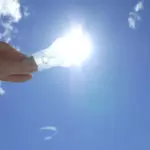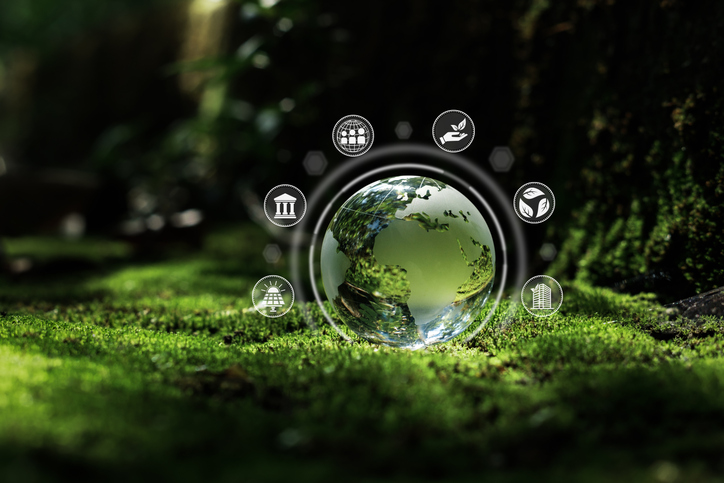What is Environmental Science?
Environmental science brings together the fields of ecology, biology, zoology, oceanography, atmospheric science, soil science, geology, chemistry and more in an interdisciplinary study of how natural and man-made processes interact with one another and ultimately affect the various biomes of Earth.
Embarking on a Green Journey: Navigating Environmental Science Education and Careers
Programs and Educational Requirements for Environmental Science Majors
Our comprehensive guide serves as your compass, addressing key questions and financial aid options such as:
- Choosing the right college program: Discover the crucial factors in selecting the ideal college degree program that aligns with your environmental aspirations.
- Education requirements: Understand the academic path required to enter the field.
- Featured programs from renowned institutions: Find a list of featured programs from prestigious institutions like Johns Hopkins University, Calvin University, Southern New Hampshire University, Arizona State University - Online, and the University of Phoenix. These programs span various areas such as Environmental Science, Energy Policy, Climate, GIS, and more.
- Scholarships and grants: Learn about financial aid options to support your educational journey.
- Internship opportunities: Find valuable hands-on experiences to enhance your skills and knowledge.
Finding the Right Environmental Science Program
Choosing the right school is a critical decision, as not all Environmental Science programs are created equal. Some may be a better fit for you than others.
So, consider what matters to you:
- In-person, online classes, or both
- Future career prospects
- Available programs
- Geographic proximity - a school near me
- Program offerings - certificates, majors, 5-year master's degree programs
- Affordability
- Opportunity to collaborate with respected professors
Environmental Science and Related Career Paths
The range of careers for Environmental Science majors is vast and depends on factors like education, individual preferences, and location. To help organize the multitude of career options, we've grouped them into five distinct career sets or categories:
- Environmental Science Careers
- Agriculture & Forestry Careers
- Environmental Policy & Planning Careers
- Sustainability & Green Careers
- Public Health Careers
For those aspiring to pursue a career in environmental science, the most popular degrees for environmental scientists include:
- Environmental Science Degree / Online Environmental Science Degree
- Environmental Law Degree
- GIS Degree
- Forestry Degree
- Meteorology Online Degree and Certificate
- Sustainability Degree
- Public Health Degree (MPH)
Allow your interests to shape your career. Your unique path matters, and we're here to help you find it.
Start Planning Your Career as an Environmental Scientist Today
EnvironmentalScience.org is the ultimate guide to everything you need to know about starting your career as an Environmental Scientist. We offer information on all aspects of becoming and working as an Environmental Scientist, including:
- Average environmental science salaries for different professions
- Common work environments
- Completing education requirements
- Finding the right college program
- Environmental Scientist job possibilities
Environmental Scientists have rewarding, challenging, and well-paying careers that offer excellent opportunities for growth and advancement. With the resources provided, you can begin your journey towards earning a degree and following the green career of your dreams.
What is an Environmental Scientist?
Environmental Scientists aren't just professionals; they're individuals like you who care about the Earth and its resource. They play diverse roles, from Environmental Lawyers to Coral Reef Sanctuary Managers, Antarctic Researchers, Laboratory Technicians, Wastewater Technicians, and Solar Panel Engineers.
They obtain their positions through various educational paths, with degrees in environmental science, studies, policy, and management - emphasizing that there's more than one path to a career in environmental science. Programs are offered at many colleges and universities in the United and Canada as well as throughout the word. Many students who begin in a different major go on to graduate school for an environmental degree.
What Do Environmental Scientist Do?
Environmental Scientists are professionals who work with the Earth's resources, and their responsibilities are quite diverse. They are often involved in various activities, ranging from increasing palm wood production in the forests of Samoa, to sampling frozen lakes in Siberia or presenting legal arguments before the Supreme Court. Clearly, the scope of their work is extensive!
Where Do Environmental Scientists Work?
From schools and research laboratories to government agencies, environmental remediation companies, private sectors and more, the job opportunities are vast. Across many different settings, Environmental Scientists are making a difference.
Companies and Industries that Hire Environmental Scientists
In local communities, you'll find Environmental Scientists contributing to sanitation stations, building/roads departments, and public health departments. Even small communities typically employ Environmental Scientists.
In larger cities, entire teams are dedicated to environmental matters and sustainability, including legal teams, water and transportation teams, infrastructure specialists, local environmental experts, and parks and recreation professionals.
A major employer at the federal level is the U.S. government with agencies like the:
- United States Environmental Protection Agency
- National Park Service
- National Oceanographic and Atmospheric Administration
- United States Geological Survey
- Department of Energy
Private sector also hires Environmental Science professionals for various roles, such as college professors, researchers, lobbyists, remediation specialists, and journalists. Some potential job titles include:
- Agricultural Engineer
- College Professor
- Park Ranger
- Oceanographer
- Environmental Toxicologist
Environmental Science Job Outlook
In 2022, the U.S. Bureau of Labor Statistics reported that there were approximately 80,500 jobs held by Environmental Scientists. Over the decade leading up to 2032, the field is anticipated to experience a 6% increase in job openings. These Environmental Scientists are employed in a variety of setting, including but not limited to:
- Various levels of schools, elementary through universities
- Independent research laboratories
- Local, state, and federal governments
- Environmental Remediation companies
- Oil and fossil fuel companies
- Pharmaceutical research companies
- Independent contractors
In addition, Environmental Scientists have the opportunity to explore alternative career paths, such as becoming a journalist, joining the Peace Corps, serving in the military, or working as consultants for their own small businesses. It is important to evaluate the many potential careers within the field of Environmental Science.
Skills Common Among Environmental Scientists
Environmental Scientists commonly possess skills such as collecting samples, interpreting results, and acting ethically. These skills are crucial for conducting research, presenting findings, and making informed decisions in the field. Plus, these skills go beyond the theoretical-they are the building blocks of real-world impact.
Collecting Samples
Environmental Scientists play a crucial role in collecting samples, whether it's gathering their own or overseeing the process. Standard Operating Procedures (SOPs) guide sample collection across various levels, such as food, atmosphere, or drinking water.
Whether you're an environmental forensic scientist or an industry lawyer, understanding how you or your company reached its research decision is so vital for it underscores the laboratory component of Environmental Science coursework.
Interpreting Results
Many high-level Environmental Scientists often focus on interpreting results, communicating their findings in different settings like courtrooms, scientific meetings, or community council meetings discussing zoning regulations. This skill isn't exclusive to experienced decision-makers; even field workers collecting routine samples must exercise judgment to determine the significance of their observations for the broader scientific team. A solid grasp of scientific thinking is crucial for anyone in the field of Environmental Science.
Acting Ethically and Humbly
While it may seem obvious, scientists, like any other group, can become so absorbed in specific studies that they lose sight of the broader picture. Recognizing and admitting mistakes is essential, as is giving credit where it's due. Although there are exceptions, a course in ethical behavior can be valuable for future Environmental Scientists. Many Environmental Science programs include such required courses.
How Do I Become an Environmental Scientist?
If you want to become an Environmental Scientist, identify your specific interests and strengths within the field. If you already have a particular area of interest, research the corresponding job market to understand the required qualifications and skills. Generally, a minimum of a bachelor's degree is required, and pursuing graduate school may be beneficial.
Consider the following questions to help guide your career path:
- Are you interested in policy or scientific research?
- Are you aiming for upper-level positions, or are you comfortable contributing to others' research ideas?
- Do you prefer working in the field or in a laboratory setting?
- Are you inclined towards inventing or innovation?
- Is travel a priority for you?
Explore Environmental Science programs that may offer established internships or provide academic credit for hands-on experience. Engaging in internships can give you valuable insights into whether the field aligns with your interests. If work-study opportunities are available, they can also serve as a valuable resource for gaining practical experience.
Some programs may have established travel programs, but it's crucial to ensure that they offer courses relevant to your needs. Don't assume that all schools provide specific training - for instance, Geographic Information System (GIS) if it's a skill you're interested in. Verify the program offerings before making decisions.
Unlocking Your Earning Potential: Environmental Scientist Salaries
According to the US Bureau of Labor Statistics, the median annual salary for environmental scientists and specialists was $76,480 in May 2022, with the top 10 percent earning more than $130,770. Median salaries for the top paying industries that year were:
- Federal government: $104,640
- Management, scientific, and technical consulting services: $76,870
- Engineering services: $76,480
- Local government: $76,300
- State government: $70,080
2022 US Bureau of Labor Statistics salary figures and job growth projections for Environmental Scientists and Specialists reflect national data not school-specific information. Conditions in your area may vary. Data accessed October 2023.
Your Gateway to Exploring Environmental Science Degrees and Green Careers
Whether you're thinking about majoring in environmental science or questioning whether it's a good major, already in school, or aiming to become an Environmental Scientist, EnvironmentalScience.org is your ultimate guide to navigate this fascinating field. Check out different educational programs and discover sustainability and green jobs.
Start your green journey today and get ready to change the world!





















